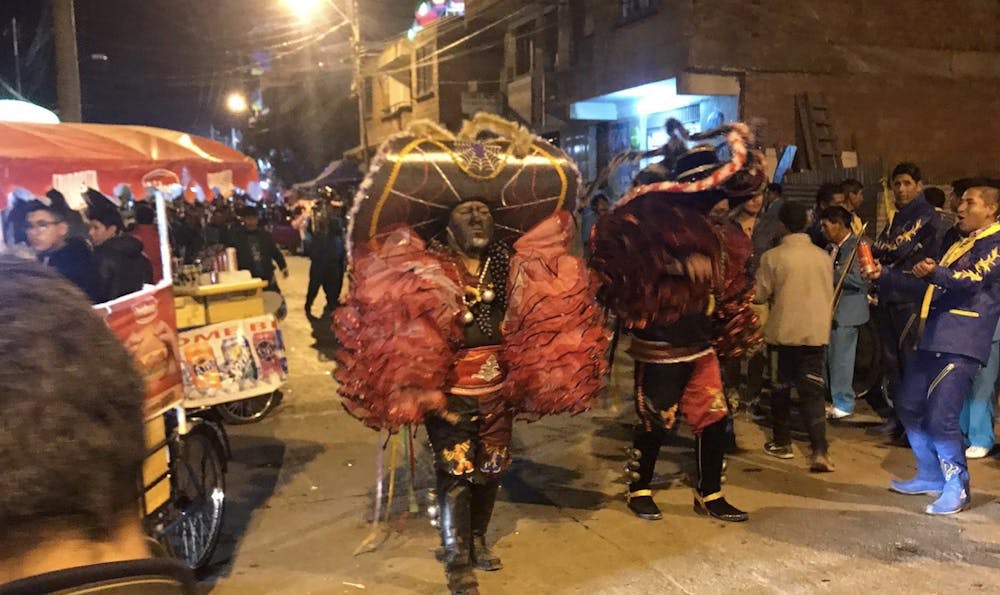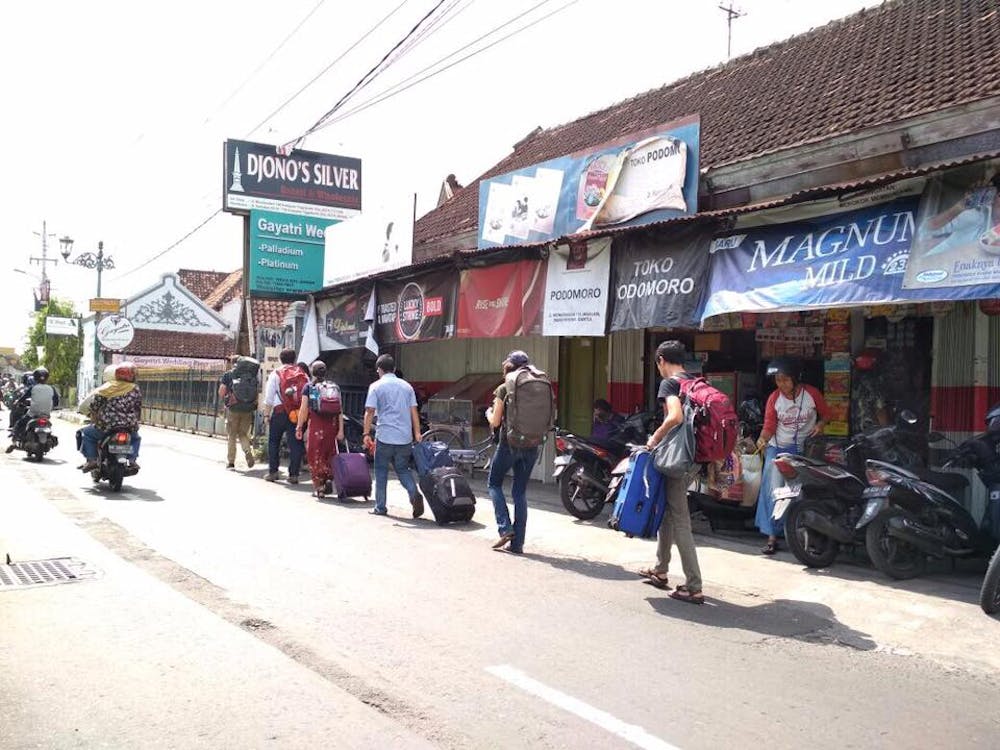In a year of global reckoning around issues of racial equity, Novogratz Bridge Year Program administrators are contemplating their role in this realignment, as they respond to minority students’ claims of racial, gender, and sexuality-based discrimination and harassment during their time abroad.
The Daily Princetonian spoke with four Bridge Year alumni who said they had faced such discrimination, emphasizing what they perceived as the program’s failure to prepare them for the experiences they would endure.
Earlier this fall, Bridge Year Director John Luria announced that the program, which allows students to embark on year-long experiences abroad before they matriculate to Princeton, would enlist the alumni-run Rested Root Corp, an education firm focused on social justice, to assist in “identifying, understanding, and addressing the oppression that participants of targeted identities have faced while on Bridge Year.”
Privately, Rested Root Corp has been speaking with Bridge Year alumni in a variety of affinity group settings. Participants, whose experiences will inform a report that Bridge Year administrators are expected to receive in the coming weeks, have been promised anonymity.
In an interview with the ‘Prince,’ Luria said the report will help Bridge Year craft, by the end of this calendar year, an “action plan” to advance diversity, equity, and inclusion. This step comes as Nassau Hall undertakes a broad range of efforts to address systemic racism.
Several students have shared their Bridge Year experiences publicly. Dani Samake ’24 and Katrina Nix ’24, who attended the program in India and Bolivia, respectively, have been vocal on social media about racial discrimination they said they faced from locals and fellow cohort members. A number of such incidents led Nix to depart Bridge Year two months early.
Sydney Eck ’24, who joined Samake on Bridge Year India 2019, and Jacqueline Lydon ’24, who attended Bridge Year Indonesia, spoke with The Daily Princetonian about their experiences of gender-based and sexual-orientation-based discrimination, respectively.
Eck and Lydon are both contributing Features writers for the ‘Prince'. Eck also contributes as a writer for the Prospect section.

The students’ allegations do not involve program staff. Instead, their claims speak to how they felt their identities led them to face discrimination within their respective Bridge Year countries.
Samake told the ‘Prince’ that she entered the program excited to explore and learn among like-minded peers. The Bridge Year India participant, who spoke openly about her experiences with colorism on Instagram this summer, said anti-Black racism became a “defining facet” of her time abroad — “one that none of the other students could relate to.”
Samake said her experiences of discrimination were relentless. She recalled strangers spitting on her at least three times and being almost hit intentionally by a bus, along with numerous other public displays of racism. Samake also spoke about the personal toll of living in a country where skin-lightening products such as “Fair and Lovely” are widely used.
“Over time, the racism I experienced in society at large and within my group began to weigh on me. My mental and physical health diminished as I struggled to justify the torment I was going through as a Black woman in an anti-black country by telling myself that I was safe, that I was cushioned by Princeton and the Bridge Year partner company, Where There Be Dragons, and that the travel and educational experiences I was having were worth the struggle,” Samake wrote to the ‘Prince.’

For Eck, the discrimination she encountered centered around gender.
“While on the program, I was dismissed by shop owners, harassed, and ignored. During one trip to a temple, an influential guru would not look at me because I was a woman,” Eck told the ‘Prince.’
“On more than one occasion, other girls on the program and I were cornered by motorcyclists while biking home at night, pushing us off the road toward the gutter while laughing and calling things like, ‘Hello! I like you! You are so beautiful, Goree (white girl)!’”
Lydon spoke to the ‘Prince’ about her experiences as a queer person and the discrimination she said she faced on account of her sexuality. From an instance of stalking to repeated homophobic sentiments, her queer identity heavily impacted how she experienced the program.
She said fear was a consistent component of her time in Jogjakarta, where being beaten or raped “are common consequences of being ‘out.’”
As a Black woman, Nix’s experiences echo the claims that Samake made about racial discrimination. Nix said she was shocked to witness the use of blackface during a parade, something she said her cohort was quick to defend.

Katrina Nix '24
“I experienced constant micro- and macro-aggressions, extreme white fragility, and constant denial of my experience,” she added.
During her time in Bolivia, Nix said she was also called a racial slur by a high school student and “stared at to no end — even stopping entire lines of traffic at times.” In one instance, Nix said she had a dog sicced on her, forcing her to quickly obtain a rabies shot.
“This experience was one that I can hardly put into words,” she said. The intensity of her experiences led Nix to cut her program short, leaving two months before completion.
In all cases, students wished the program had better prepared them for the environments in which they found themselves.
Samake doubted that Bridge Year was ignorant to the circumstances she faced. “The Bridge Year Office knew from past student experiences that Black students face incessant racism in the vast majority of Bridge Year locations, and yet did not adequately prepare me for what life in India would be like,” she said.
From a different set of experiences, Eck similarly called for better preparation.
“There are elements [of the experience] that were inherently damaging to members of our cohort when coupled with a lack of preparation, awareness, and support from the program,” she said.
Asked to respond, Luria told the ‘Prince’ that Bridge Year acknowledges discrimination and injustice as “global concerns” and is committed to preparing students for situations they may face abroad.
“While we as a program may not be able to solve these global concerns, there is commitment on the part of the program to prepare students for the challenges that they face while they are abroad and supporting them when they encounter these issues,” he said.
Luria described several program components, both at the trip’s outset and throughout, that work to prepare students for their new cultural context. Specifically, he pointed to the program’s orientation and the Where There Be Dragons staff, who are on site to help students navigate new cultural surroundings.
While Lydon conceded that her safety concerns might have been unrealistic given her privilege as a foreigner in Indonesia, she said, “the daily anxiety and lack of support system was harmful in itself.”
Beyond her fears, Lydon said she faced a reality of homophobia that on-site staff did not have the education to confront.
“Program authorities had not been educated about what students might face and were unprepared to support us,” Lydon said. “Both the Bridge Year and Dragons offices need to educate instructors, be better about reaching out to students, open up conversations about privilege, educate participants on how to support each other, and more.”
Luria outlined the training that Where There Be Dragons staff undergo to help students navigate their cultural environment and address concerns as they arise.
First, he pointed to the Where There Be Dragons instructors’ cultural backgrounds. One of the two head instructors is usually an expat, he said, while the other is almost always a member of the local community. Additionally, he emphasized the resources they rely on, citing “a host of instruction manuals” and training programs that all instructors take over the summer.
Luira said the instructors are “really committed to creating an exceptionally supportive environment” and “deeply committed to ensuring the well being of students.”
Still, program participants who spoke with the ‘Prince’ said they felt unprepared and undersupported.
“The outpouring of care, support, and love from our program directors, Matt Lynn, and others at the BY Office and WTBD was often hindered by structural deficits in a program over a decade old,” Eck said. “The Bridge Year office must provide resources both to protect against the physical dangers students may face on the program and to provide for the mental health needs of all participants.”
“They have a lot of work to do,” Lydon added.








